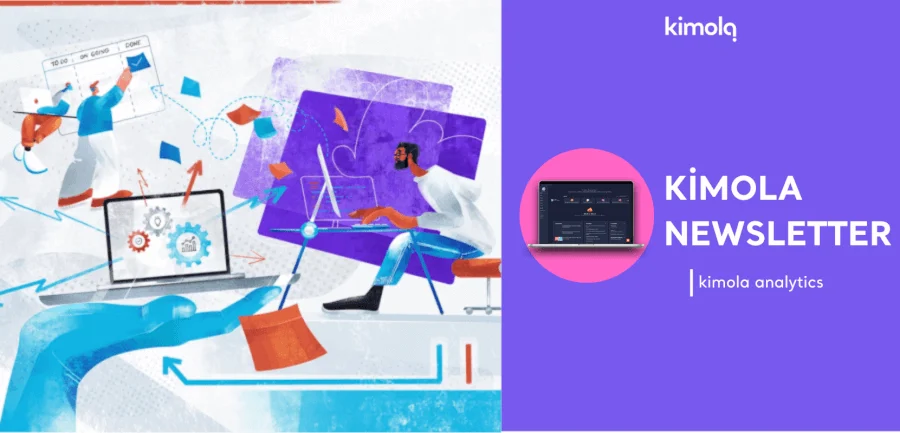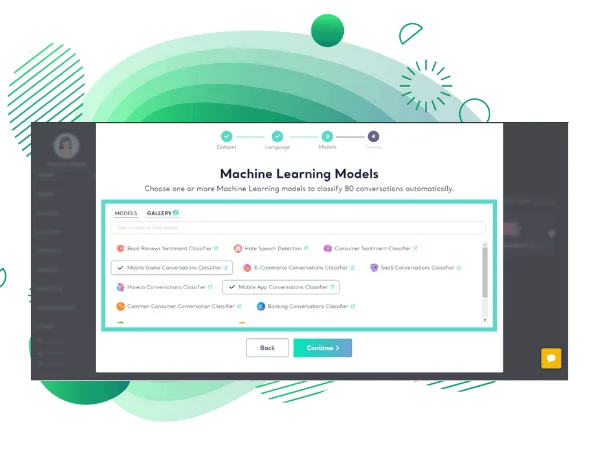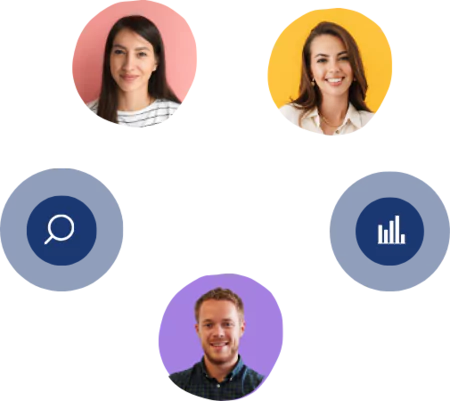Kimola Newsletter | Cognitive 1# 🚀 New Graphs on Reports!

We are gathering news on artificial intelligence, machine learning and Kimola Cognitive's product updates on this newsletter.
Let us know what you think about our newsletter on anything by mentioning us on Twitter @kimolacognitive

Trend Graph is live!
Our product team has been working on the Reports section for a huge update and Trend Graph is published this week!
How to add it to your report
⚡️ Upload your data on the home page of Kimola Cognitive and choose the Date column in addition to the text column.
ML Model Suggestions for Your Data

Not sure which models you can choose from the Kimola Cognitive Gallery to analyze the consumer conversations you collect? Do not worry!
Kimola Cognitive guides you and advises you on which models it can classify the data it processes in seconds.

Industrializing AI
According to McKinsey's Technology Trends Outlook 2022 Report, two of the 14 most important technology trends emerging today are applied artificial intelligence (a sub-branch of artificial intelligence that increases the efficiency and productivity of an existing application while reducing errors and implementation time) and industrialization of the machine. learning (systems that market products faster at lower cost). In a 2021 McKinsey Global Survey on the state of AI, 56% of respondents said their organizations had adopted AI, up from 50% in the 2020 survey. According to the 2022 report, tech industries are leading in AI adoption, while product development and service operations are the business functions that have seen the most benefits from applied AI.
Google's New Robot is at Work
Google, one of the technology giants working to make our daily lives easier in recent years, continues to test the PaLM-SayCan robot it has developed with machine learning. This robot is planned to perform multiple operations rather than serving a single purpose. The robot has learned nearly 540 billion language parameters thanks to PaLM artificial intelligence, and the learning process of the robot continues. The interesting thing is that Google tests the robot in the kitchen, not in laboratories or factories, as in other companies. According to the information conveyed by company employees, PaLM-SayCan can distinguish between popular brands and can also do cleaning work. For example, employees say, “I spilled my drink, can you clean it up?” command, the robot can clean.
ML Identifies Undiagnosed Cancers
The first step in choosing the appropriate treatment for a cancer patient is to identify the specific types of cancer, including identifying the primary site, the organ, or part of the body where cancer started. A source of cancers may not be identified in rare cases, even with extensive testing. However, with the machine learning model developed by researchers Integrative Cancer Research at MIT and Massachusetts General Hospital, it will be possible to classify cancers of the unknown primary by looking more closely at conditions such as early cell development and differentiation. The machine learning model (D-MLP) trained in the research was applied to 52 new cancer samples that could not be diagnosed using existing tools. These cases represented the most challenging cases seen in MGH over a four-year period starting in 2017. Excitingly, the model divided tumors into four categories and provided predictions and information that could guide the diagnosis and treatment of these patients.
AI Wins Art Competition!
Jason Allen, president of Colorado-based game company Incarnate Games, participated in the competition with an image he created in Midjourney, an artificial intelligence program that produces images based on words. This painting drawn by artificial intelligence won the first prize in the fine arts competition of the Colorado State Exhibition in the USA. The image, which went viral on social media, caused controversy over the fact that artificial intelligence will destroy artists. The work, which has the name 'Théâtre D'opéra Spatial', which means Space Opera Theatre, depicts a space opera and draws great attention to its details. In addition to having an animated and lively design, this work of artificial intelligence and Allen reveals a Baroque-style space where light stands out, blending it with a dazzling landscape and human figures.








